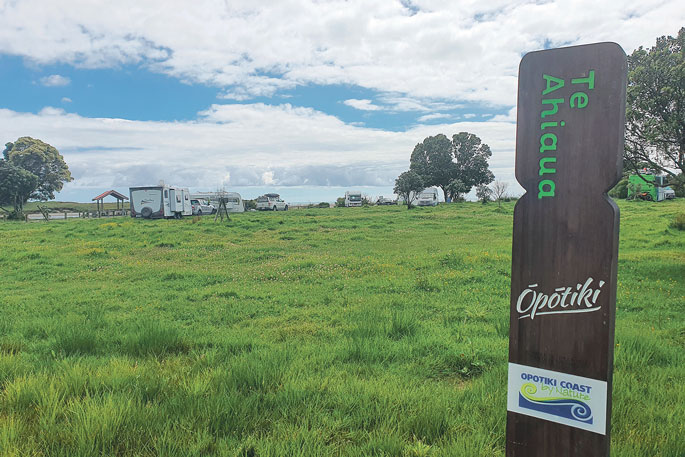Ōpōtiki council is being urged to ban or limit the number of overnight campers at Te Ahiaua Reserve due to fears the public toilets are putting pressure on the delicate environment.
At a hearing for the district council’s draft Freedom Camping Bylaw, Eastern Bay of Plenty Forest & Bird’s Linda Conning and Waiotahe resident Elizabeth McAdam spoke about the impact of campers on the estuary, locally known as the Pipi Beds.
Conning said the Waiotahe River estuary was considered a habitat of considerable importance to the biodiversity of the Eastern Bay.
Speaking on Forest and Bird's submission, she raised concerns about potential septic discharges from the public toilet so close to the delicate habitat and the pressure that multi-night campers would put on the facilities over the busy summer months.
She said she understood the septic tank was regularly pumped but still had concerns about the capacity and the likelihood of the toilet exceeding that.
“We request that the council monitors either the levels within the system or number of users to establish if the current system can cope with influxes at busy times.
“If this is not the case, the camping ground may need to be shut down to allow the toilets to be used by day users and passersby only, or the septic system may need to be upgraded.”
She was also concerned campers might dump grey water – water from washing dishes, laundry or showers - directly onto the ground, litter, disturb wildlife or allow their dogs to disturb wildlife.
McAdams said although she was not against freedom camping, the number of campers at the reserve meant locals felt they were not able to use the area over the summer.
“The pipi beds are continually overloaded by people staying for more than three days. People camp in prohibited areas as well, which goes unchecked.
“Because of this, the ratepayers of the area cannot use that public reserve. I’ve had people say to me that they feel intimidated going there with their kids just because of the volume of people.”
She suggested a small nightly charge would be appropriate to cover the cost of toilet cleaning, rubbish disposal and grass cutting.
"I see little evidence of these holidaymakers contributing to the local economy in any significant way except perhaps purchasing some groceries.”
The bylaw received 56 submissions over two rounds of consultation.
The bylaw underwent changes after a submission from the New Zealand Motor Caravan Association highlighted that a statement saying freedom camping was prohibited in all areas of the district except four restricted areas was not compliant with the Freedom Camping Act 2011.
An association spokesperson had been scheduled to speak at the second hearing, having raised concerns about the reasons for prohibiting freedom camping in some areas, drawing the council’s attention to a legal case it had taken to the High Court that had invalidated the Queenstown Lakes District Council’s Freedom Camping Bylaw.
However, parks, reserves and harbour operations manager Garry Page said he had answered a lot of queries the organisation had about the bylaw and it had been satisfied with his responses.
LDR is local body journalism co-funded by RNZ and NZ On Air.




1 comment
Charges
Posted on 01-11-2024 13:30 | By Come on TCC!
Maybe instead of talking about shutting the site down I'm sure if there was a small charge of around $10 per night people would be happy to pay.
Leave a Comment
You must be logged in to make a comment.